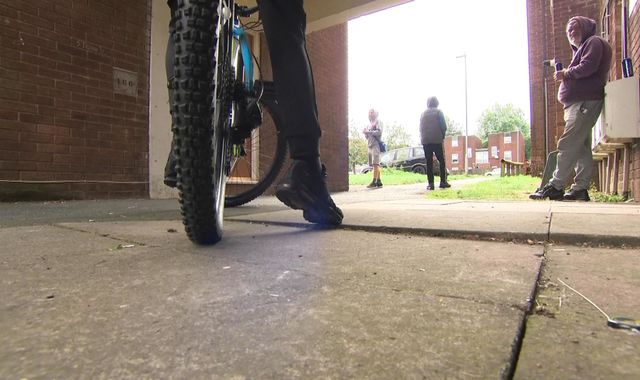Deprived communities will only fall further behind without adequate funding, says study
Written by News on 01/09/2019
The Brookside estate near Telford is quiet today.


In its centre there’s a community hub, a hairdresser/tanning salon, a chip shop and a convenience store. And not much else.
As one teenager tells me: “There’s nothing to do here but play football and smoke weed.”
This is one of more than 200 areas identified in a new study as being left behind. Even amongst areas of deprivation, these are the places that are struggling the most.
The report was commissioned by Local Trust and Oxford Consultants for Social Inclusion.
Local Trust was set up to deliver Big Local, a National Lottery Community Fund-funded programme which committed £1m each to 150 neighbourhoods across England.
The report suggests that “places to meet, connectivity – both physical and digital – and an active, engaged community are vital to secure better social and economic outcomes for people living in deprived neighbourhoods”.
It goes on to say that the 206 wards that were identified as being ‘left behind’ are likely to have higher rates of unemployment and child poverty.
The wards have a combined population of more than 2 million people.
They’re concentrated in housing estates outlying big towns and cities, such as Greater Manchester, Merseyside, Birmingham, Middlesbrough, Hull and Stoke, as well as in post-industrial areas in northern England and coastal areas in southern England.
Matt Leach, chief executive of Local Trust, said: “The areas we have identified as left behind are often on the edges of cities and towns yet disconnected from jobs and services. They have lost the pubs, community centres and other facilities that people need to sustain their neighbourhoods.”
:: Listen to the New Lines podcast on Apple podcasts, Google Podcasts, Spotify, Spreaker
The report calls for more government support to “build stronger communities and better places to live”.
Shana Roberts lives in Brookside and has become an active member of the community here.
She’s become a parish councillor and is part of the team who helped decide where Brookside’s £1m Big Local funding was to be spent.
She agrees that infrastructure is a factor in the quality of life on the estate.
“A lack of easy public transport and of car ownership makes it difficult for people to commute to work outside the area, and there are few jobs or amenities locally,” she says.
“It has the effect of making younger people want to move away, and making older people become more isolated.”
The funding has provided one thing which many of the other highlighted areas lack – a community hub.
It’s used by young and old as a social centre and cafe, and also provides education and health courses and advice.
According to the residents here, it has made a big difference, providing a much needed social focus.
The people of Brookside are optimistic that things will improve.
The report is less so.
It warns that without adequate funding to allow greater connectivity, both socially and digitally, the wards they have identified will only fall further behind.
(c) Sky News 2019: Deprived communities will only fall further behind without adequate funding, says study







